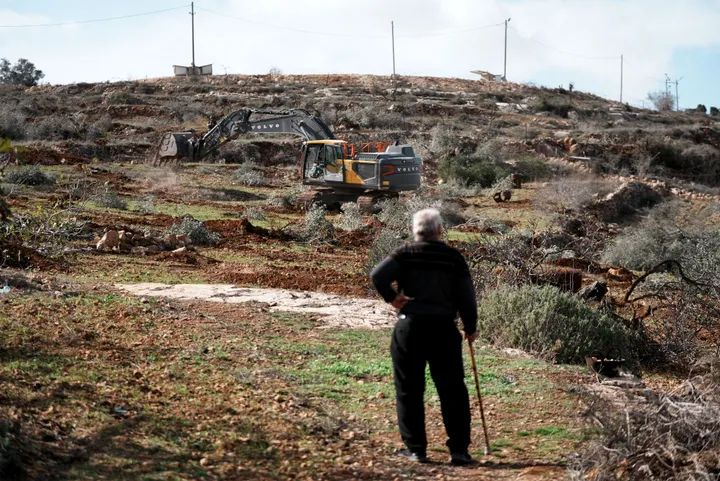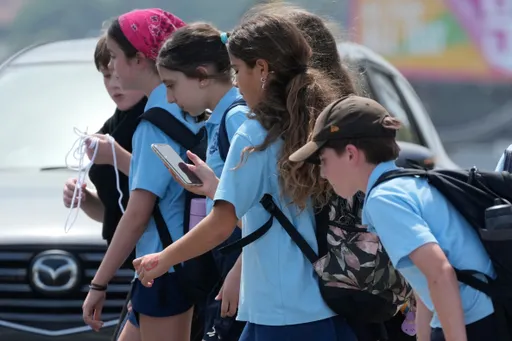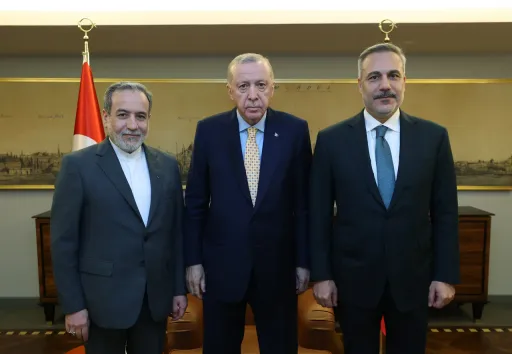By Firmain Eric Mbadinga
The skill of assisting a pregnant woman in the delicate, physical act of childbirth is perhaps as old as civilisation.
History and literature document how midwifery flourished in ancient Egypt, Byzantium, Mesopotamia, and the Mediterranean empires of Greece and Rome.
Skilled midwives attended to births, drawing upon their knowledge of herbs, positioning, and supportive care.
These women were revered for their wisdom and compassion. Theirs was a service to humankind's bid to perpetuate life safely and naturally.
As the French thinker and physician Robert Debré once said, "Our children are our eternity."
In West Africa's Benin, Annick Nonohou, a midwife and lawyer by training, has been campaigning through her NGO against "obstetric violence", which the World Health Organisation (WHO) defines as "any act by a healthcare worker that harms a pregnant person or someone giving birth".
Annick founded RSAP Bénin to combat obstetric violence by raising awareness among pregnant women and healthcare personnel about a humane, safety-first approach to childbirth.
"We aim to defend patients' rights and fight gynaecological and obstetric violence to improve maternal and child health and bring about a tangible reduction in avoidable maternal and neonatal deaths in our country," Annick tells TRT Afrika.
Moroccan insights
Réseau des soignants amis des patients, or RSAP, took shape in Annick's mind in 2012 after she attended a course in Morocco.
She teamed up with a paralegal midwife friend, Émilienne Badou Adjobo, to emulate the model developed by Morocco at the time for the protection, care and support of women throughout pregnancy.
"The internship enabled us to learn that our Moroccan midwifery colleagues were able to improve the quality of obstetric and neonatal care and reduce maternal deaths by half in a decade (2001-2011), thanks to their remarkable activism in popularising patients' rights in health and community settings," says 40-something Annick.
She was particularly impressed with their networking, which led to the gradual elimination of medical violence. Back home, Annick and others, including Émilienne, moved their then fledgling NGO into a small premises in the heart of Tankpè district in Abomey-Calavi commune.
The place has since become the headquarters of RSAP Bénin.
At the centre, and sometimes in the homes of patients or hospitals, members of the NGO educate pregnant women about the intricacies of childbirth, especially obstetric violence, wherever it may come from.
"In the field, we provide a wide range of scientific and legal information and skills. To caregivers, families and communities, we present international, regional and national legal and regulatory requirements relating to healthcare laws and the prevention and repression of violence against women and girls," says Annick.
Healthcare professionals benefit from refresher training in legislative provisions governing obstetrics, especially humanisation of care and respect for patients' rights.
Mother's trauma
Annick's backstory provides the context for her transition to midwifery and the advocation of obstetric rights.
In her growing years, she had witnessed the sufferings of her mother, who went through several difficult childbirths.
It was then that Annick vowed to do something to prevent childbirth from becoming an ordeal made even more painful by mistreatment or negligence.
"I, too, experienced obstetric violence during the birth of my eldest son. I know all about the inhumane and degrading treatment of patients and the cases of mistreatment inflicted on women in healthcare settings that have even led to deaths," she says.
Almost like a perfect destiny, she set her sights on the disparate professions of midwifery and law.
Self-funded mission
After her stay in Morocco, she used her savings to create the NGO that is now a beacon of hope for many in Benin.
Over the past decade, Annick has been setting aside a portion of her salary every month to keep RSAP Bénin going.
New inductees pay small membership fees, which add to the corpus required to finance the campaign. '
"We make pregnant women understand that they must demand respect for their rights and freedom, that they must express their opinions and denounce any gynaecological and obstetric violence they might face," Annick tells TRT Afrika.
Pregnancy simulation exercises involving volunteer spouses teach women and their prospective caregivers what it takes to ensure safe childbirth.
"We have pregnancy vests to make fathers-to-be undergo abdominal expressions or perform domestic chores to experience the suffering and pain undergone by women during the perinatal period.
This also encourages positive masculinity," explains Annick. RSAP Benin also urges lawmakers to push for specific laws for the protection of women from obstetric violence.
According to a 2015 study by the United Nations Population Fund, almost 45% of child deaths in sub-Saharan Africa under the age of five involve newborns.
The majority of these deaths occur during the first week of life. Of these, 25% to 45% occur within the first 24 hours.
The UN points out that most of these newborn deaths occur in developing countries, where access to healthcare is inadequate.
WHO acknowledges these professional shortcomings in assisting pregnant women, including lack of technical equipment.
Annick, who has come across 5,000-odd cases of obstetric violence in her career so far, intends to soldier on in the face of many odds.
➤ Click here to follow our WhatsApp channel for more stories.




























